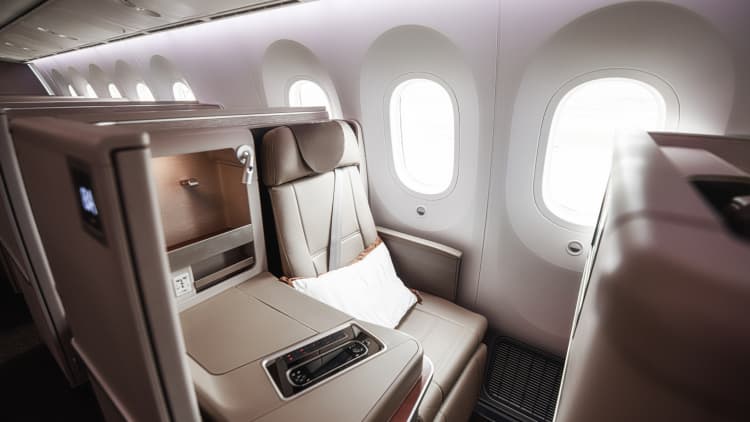German Chancellor Olaf Scholz tried to strike a delicate balance on a trip to China this week, promoting business ties with his country’s largest trading partner while raising concerns about its export boom to Europe and support for Russia.
Mr. Scholz met China’s top leader, Xi Jinping, at the Diaoyutai State Guesthouse in Beijing on Tuesday, the culmination of a three-day visit with a delegation of German officials and business leaders. He also met with Prime Minister Li Qiang as relations between the two countries are strained by Russia’s war in Ukraine and China’s rivalry with the United States, Germany’s key ally.
During his trip, Mr. Scholz represented the interests of German companies that are finding it increasingly difficult to compete in China. And he expressed growing concern in the European Union that the region’s market is becoming a dumping ground for loss-making Chinese goods.
But Mr. Scholz chose a conciliatory rather than combative tone in his opening remarks before sitting down with Mr. Xi on Tuesday morning in an hours-long meeting that culminated in a walk and lunch.
It was the German leader’s first visit to China since his government adopted a strategy last year that defined the Asian power as a “partner, competitor and systemic rival” and called on Germany to reduce its dependence on Chinese goods.
The German economy has shrunk over the last year, and its weaknesses have shown the country’s reliance on China for growth. Due to the war in Ukraine, energy prices have risen, helped by Beijing’s support for the Kremlin. German companies pushed for more access to China and complained that they were facing unfair competition.
The Chancellor visited German companies with major investments in China and met with trade representatives and officials in the sprawling industrial metropolis of Chongqing in southwest China, as well as in Shanghai and Beijing.
Speaking to a group of students in Shanghai on Monday, Mr Scholz answered a question from a student planning to study in Germany this year, saying he was “really concerned” because the country had partially legalized cannabis. “If you study in Berlin, you can walk around all the time and never meet anyone who does that,” the Chancellor assured him.
But he also used the platform to spread more serious messages about trade. “The competition has to be fair,” Mr. Scholz told the students. “We want a level playing field,” he said.
Mr. Scholz’s trip was an example of the difficult dance Germany is attempting: maintaining economic ties with China while countering U.S. pressure to ally more closely with Washington against Beijing.
In his talks, Scholz emphasized Germany’s commitment to doing business with China, but also warned that Beijing must stem the flow of Chinese goods to Europe. At the same time, he expressed reservations about the European Union’s investigation into China’s use of subsidies for green technology industries, saying any discussion about trade must be based on fairness.
“This must be done from a position of self-confident competitiveness and not from protectionist motives,” Scholz told reporters on Monday.
China’s manufacturing push in green sectors such as electric cars and solar panels has sparked trade disputes with Europe and the United States, where such industries have also received government support. But with 5,000 German companies active in the Chinese market, Germany stands to lose more than many of its European partners if Beijing strikes back against the European Union.
“If the EU takes too hard action against China, we will have to expect countermeasures, and that would be a catastrophe for us,” said Maximilian Butek, managing director of the German Chamber of Commerce in China.
“It is extremely important for us that the Chinese market remains open,” he said.
In his meeting with Mr. Xi, Mr. Scholz indicated that Russia’s war against Ukraine and its buildup were high on his agenda. “They directly impact our core interests. “Indirectly, they damage the entire international order,” he said in his opening speech at the meeting, the transcript of which was provided by Mr. Scholz’s office.
But he at least raised the issue publicly in a non-confrontational tone and expressed no direct concerns about China’s support of Moscow’s war economy, particularly its continued sales to Russia of goods with potential battlefield use. He said he wanted to discuss “how we can contribute more to a just peace in Ukraine.”
China hopes to drive a wedge between Europe and the United States by courting leaders like Mr. Scholz. State media reported that his visit was evidence of the strength of China’s ties with Europe and an upgrade of China’s economic ties with Germany.
In his opening speech to Mr. Scholz, Mr. Xi said that cooperation between China and Germany, which have the second and third largest economies, was beneficial for the world, a remark that could be understood as directed at those in Berlin have called on them to distance themselves from Beijing.
“The two countries should view and develop bilateral relations from a long-term and strategic perspective and work together to bring greater stability and security to the world,” Xi told Scholz, emphasizing the importance of finding “common ground.”
Beijing will certainly welcome the message that German companies are getting involved in China. The Asian giant is trying to attract foreign investment to revive its economy, which has stalled due to the slowdown in the real estate market. Some Western companies and investors have also been unnerved by Mr. Xi’s emphasis on national security, which they say makes operating in the country riskier.
From China’s perspective, Germany could be the best hope of delaying or weakening any trade restrictions from Europe, said Noah Barkin, senior adviser in the China practice of research firm Rhodium Group.
German automakers have invested billions of dollars in China, and much of their revenue comes from there. Many fear that German companies will suffer the most if the European Commission imposes higher tariffs on Chinese exports and Beijing retaliates.
Chinese officials “know that German companies are heavily invested and are using this politically to influence policy-making in Berlin,” Barkin said.
The largest German companies, including BMW, Mercedes-Benz and BASF, have large offices in China and strong, effective lobbies in Berlin, Mr. Barkin added. Executives from those companies, along with several others, traveled to China with Mr. Scholz.
“The supply chain in China is full of German goods,” said Jörg Wuttke, former president of the EU Chamber of Commerce in China. “If China wages a price war with Germany, no one will make any more money.”
Mr. Scholz also brought along Germany’s agriculture, environment and transport ministers, who experts said were particularly interested in working with China.
“You are setting an agenda with these three ministers, the overall tone is cooperative, these are areas we want to work on,” said Janka Oertel, director of the Asia program at the European Council on Foreign Relations.
Chinese officials, for their part, have rejected European accusations of unfair trade practices, calling them baseless and an act of “typical protectionism.” They have suggested they could retaliate against any EU action, saying China is “deeply dissatisfied with its investigations and strongly opposes them.”
In an interview with German newspaper Handelsblatt, Wu Ken, China’s ambassador to Germany, said that the competitive advantage of Chinese electric vehicles “is based on innovation, not subsidies.”
“The challenge for developed countries is more that Chinese companies are more efficient,” said the ambassador.
Zixu Wang contributed reporting from Hong Kong.
Source link
2024-04-16 10:22:14
www.nytimes.com














